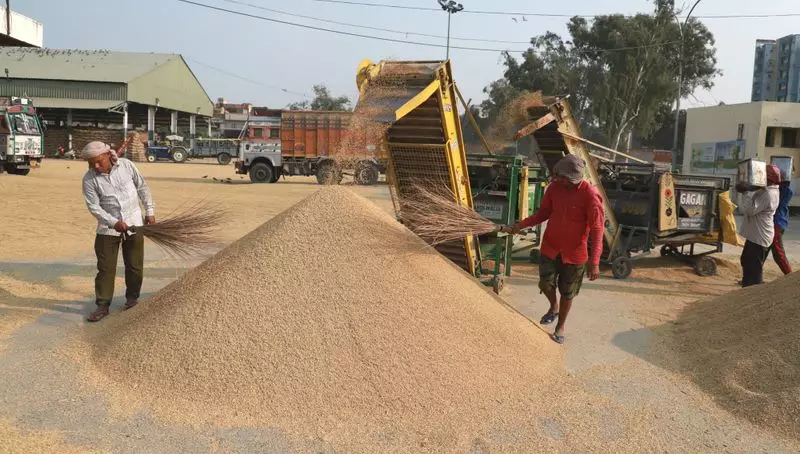
In a shocking revelation that has sent ripples through Haryana's agricultural community, farmers are reportedly being compelled to sell their hard-earned paddy crops below the government-mandated Minimum Support Price (MSP). The situation has prompted strong reactions from farmer leaders and raised serious questions about the implementation of price support mechanisms.
What's Happening in Haryana's Grain Markets?
According to Gurnam Singh Charuni, the prominent leader of Bharatiya Kisan Union (BKU), procurement centers across the state are engaging in practices that directly contravene government assurances. "Paddy is being procured below MSP," Charuni stated unequivocally, highlighting the growing distress among the farming community during the crucial harvest season.
The MSP Promise vs Ground Reality
The Minimum Support Price is supposed to act as a safety net for farmers, ensuring they receive fair compensation for their crops regardless of market fluctuations. However, the current scenario in Haryana tells a different story altogether. Farmers who invested significant resources in cultivating paddy are finding themselves at the mercy of procurement agencies that seem to be disregarding the official price floors.
Impact on Farming Community
The implications of this development are far-reaching:
- Financial distress for small and marginal farmers
- Erosion of trust in government procurement systems
- Potential long-term impact on agricultural productivity
- Increased debt burden for farming families
Charuni's Warning and Next Steps
The BKU leader has made it clear that farmers will not remain silent spectators to this injustice. While specific details about the planned course of action remain under wraps, Charuni's statements suggest that organized protests and demonstrations might be imminent if the situation doesn't improve quickly.
This developing situation comes at a critical time when farmers across North India are harvesting their kharif crops. The allegations of MSP violations in Haryana could have domino effects on agricultural policies and farmer-government relations in the region.
As the controversy deepens, all eyes are on the state administration and procurement agencies to address these concerns promptly and ensure that farmers receive the full MSP they're entitled to under government schemes.





